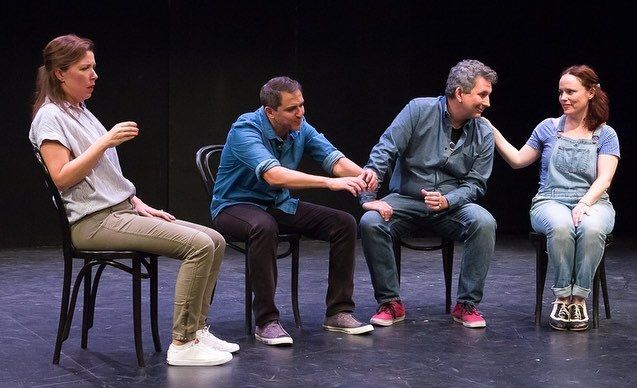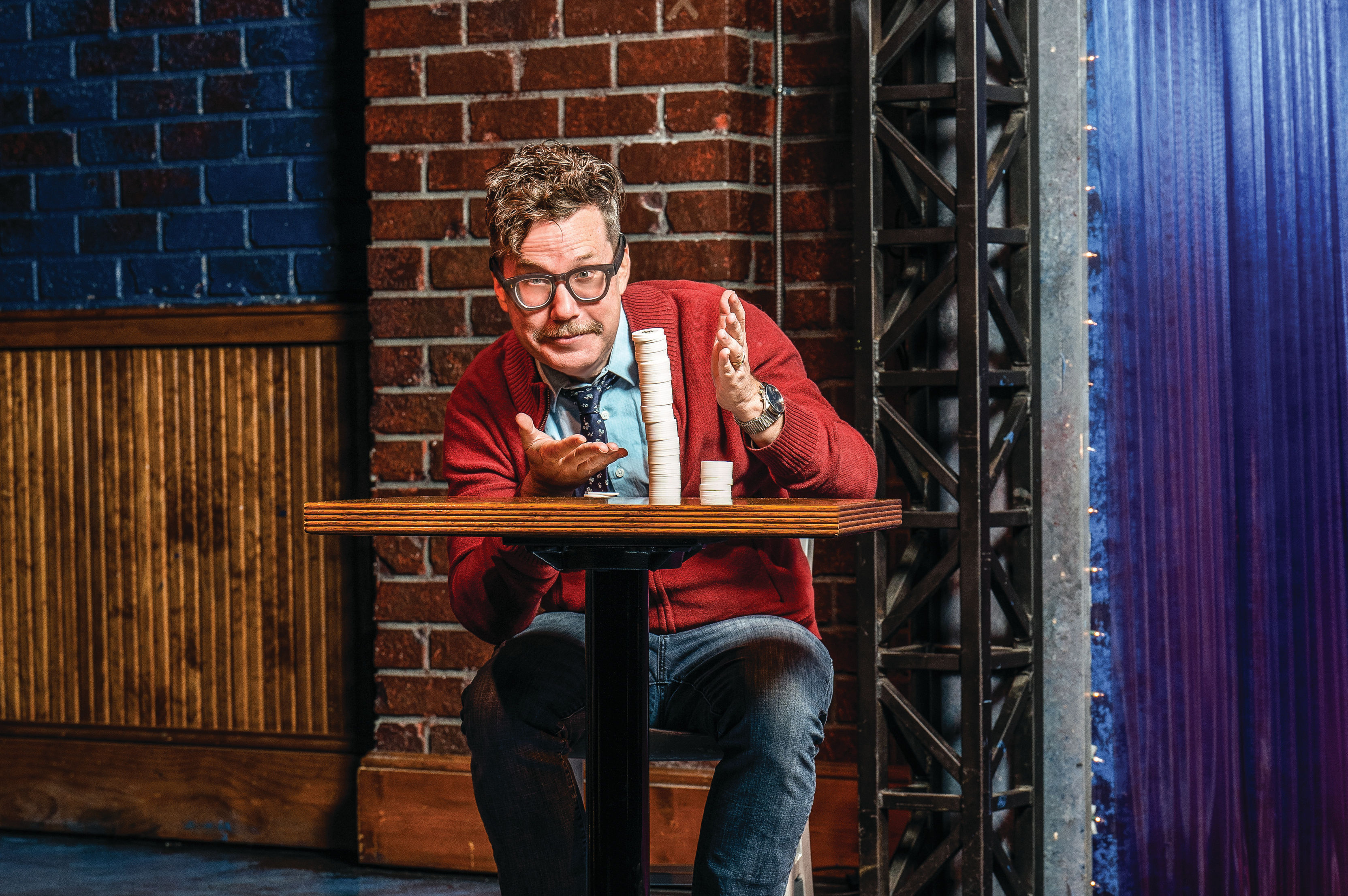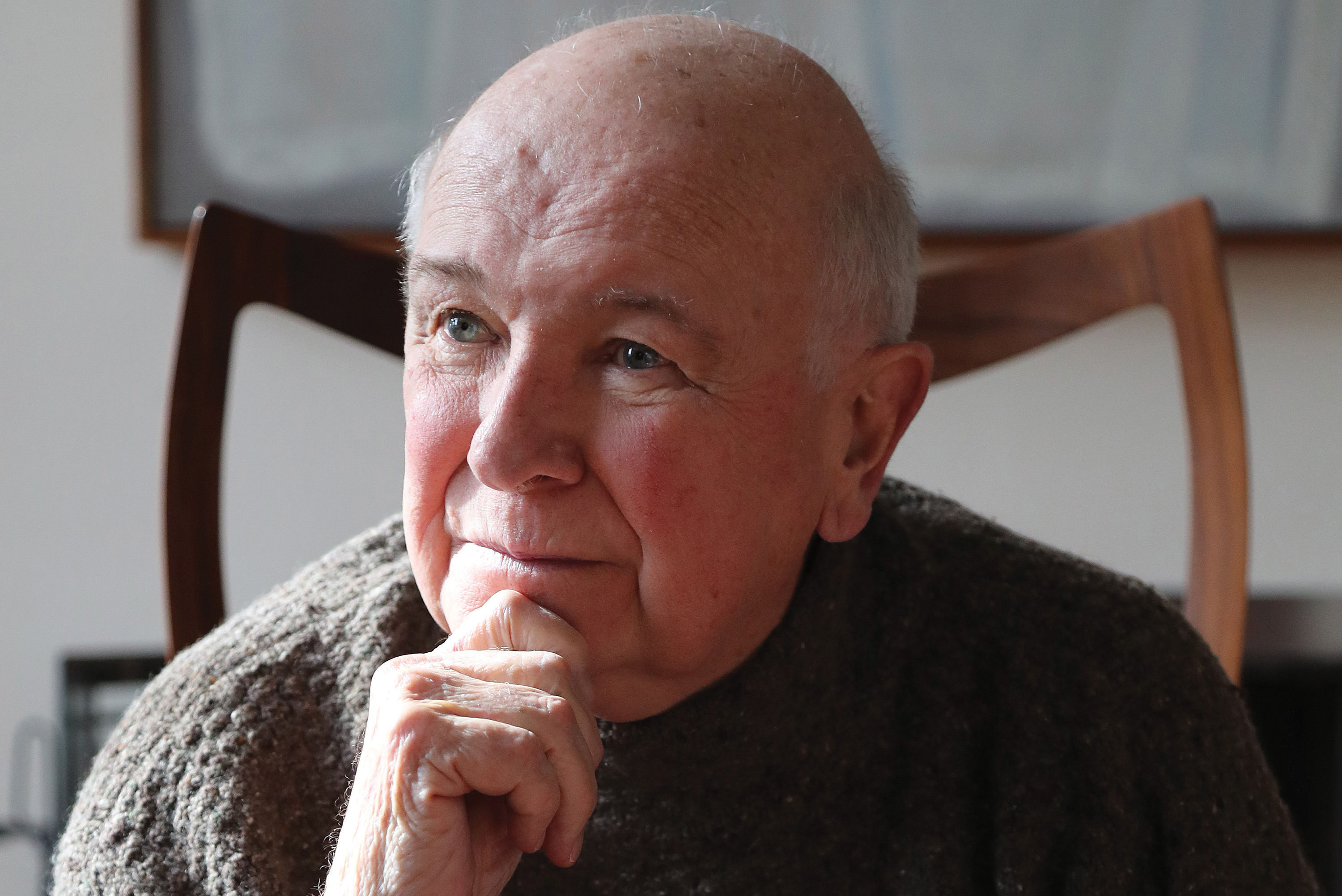Comedy Pro Bob Dassie Heads to Florida Studio Theatre Improv Festival Next Month

(Pictured left to right) Jean Villepique, Bob Dassie, Craig Cackowski and Carla Cackowski in a performance at the Stumptown Improv Festival.
Image: Chelsea Petrakis
On July 12 and 13, Florida Studio Theatre’s 11th annual Sarasota Improv Festival will culminate in special guest performances featuring distinguished improviser Bob Dassie. Dassie will be performing as a member of the Los Angeles-based group Quartet alongside Carla and Craig Cackowski and Jean Villepique. Using audience suggestions about themes, Quartet will act out a longform, character-driven plot.
Dassie has been doing improv for almost 30 years and has toured, taught, and performed across the United States and in cities around the world. He has also written for and appeared in a number of comedy shows on television, acted in fully improvised plays, and created the web series WeirDass: Eleven Year Itch with his wife, Stephanie Weir. Dassie trained under Stephen Colbert, David Razowski and Steve Carrell, who all share a passion for the art of improvisation, but who are widely known for their talents in a wide range of entertainment forms. Dassie himself is also a musician, playing the alto saxophone in a band with other improvisers.
When Dassie created Quartet in 1990s Chicago, improv was just beginning to take off as a performance art. Since then, the field has blossomed—and Dassie has found his niche. We picked his brain about his philosophies on improv, both onstage and in life.
Quartet is dedicated to relationship and character-driven improv comedy. What does that mean?
We try to pursue the relationships of the characters in whatever environment they’re in, in order to basically look at human nature and use that as a springboard for this art form. The comedy comes out of those relationships, because people are hilarious.
What brought the members of Quartet together?
We were all in the same theater group in Chicago, and Quartet had gone through many different lineup changes. Now, we’ve all been in the same environment and we have similar tools in our toolbox, and we all have a shared language that we speak. So when we get on stage, even if we haven’t been together in a while, we still have a common pursuit. It’s always fun to get back together with these guys and perform.
What do you mean by similar tools in the toolbox?
We have similar disciplines. We know how to build themes. A four-person show means that all four people are significant and valuable on stage. It’s a collective. Everyone’s adding to this piece that we’re making. Sometimes we’ll do a scene that goes for 20 minutes, and to sustain a scene for 20 minutes for the sake of exploration versus the sake of time, that takes a certain discipline. And I gotta say that everyone in Quartet has those same abilities.
What advice do you have for people pursuing improv?
I would say pursue improv as an end in itself. In other words, a lot of people come to improv because it’s a springboard for whatever is next in their acting or comedy career. Improv is an amazing tool to have, but when you’re doing improv, do it for the sake of improv. Do it for the sake of that art form.
How do you think improv can help people in other areas of their life?
It really helps in communication and building teamwork, working well with others. A lot of times people will shoot down each others’ ideas instead of build them up. And what we’re taught in improv is to make your partner look good. We work on ways to heighten each other's strengths versus knock down each other's weaknesses. Improv is really a great philosophy in that regard.
How has improv improved your own life off the stage?
I found out quickly that on stage you can say and do anything that you’re inspired to do, and so it’s a very free art form. But also I come from a musical background as well, and improvisation is really about listening and reacting to everything around you. In other words, no man is an island. I’ve been married for 18 years now, and my wife is an improviser as well. We’re a partnership, and we help support each other and build up each other. And people might do that without that philosophy of improv, but improv has made it clear to us that we should use those strengths to build up our team.
How do your musical pursuits overlap with your improv?
The joy is in the playing. Another thing that improv does is that it allows adults to play—as does music. That’s something I find disappears the older you get. I find that music and improv go hand-in-hand in the sense of listening and reacting to all the influences that are around you, and building off others’ ideas, and making art in a collective.
I used to say I joined improv because I was a frustrated musician, and now that I’ve done improv for a long time and I’ve come back to music, I say I got into music because I’m a frustrated improviser. I’m able to express my ideas a lot better now that I have an improv vocabulary.
This interview has been edited for length and clarity.



